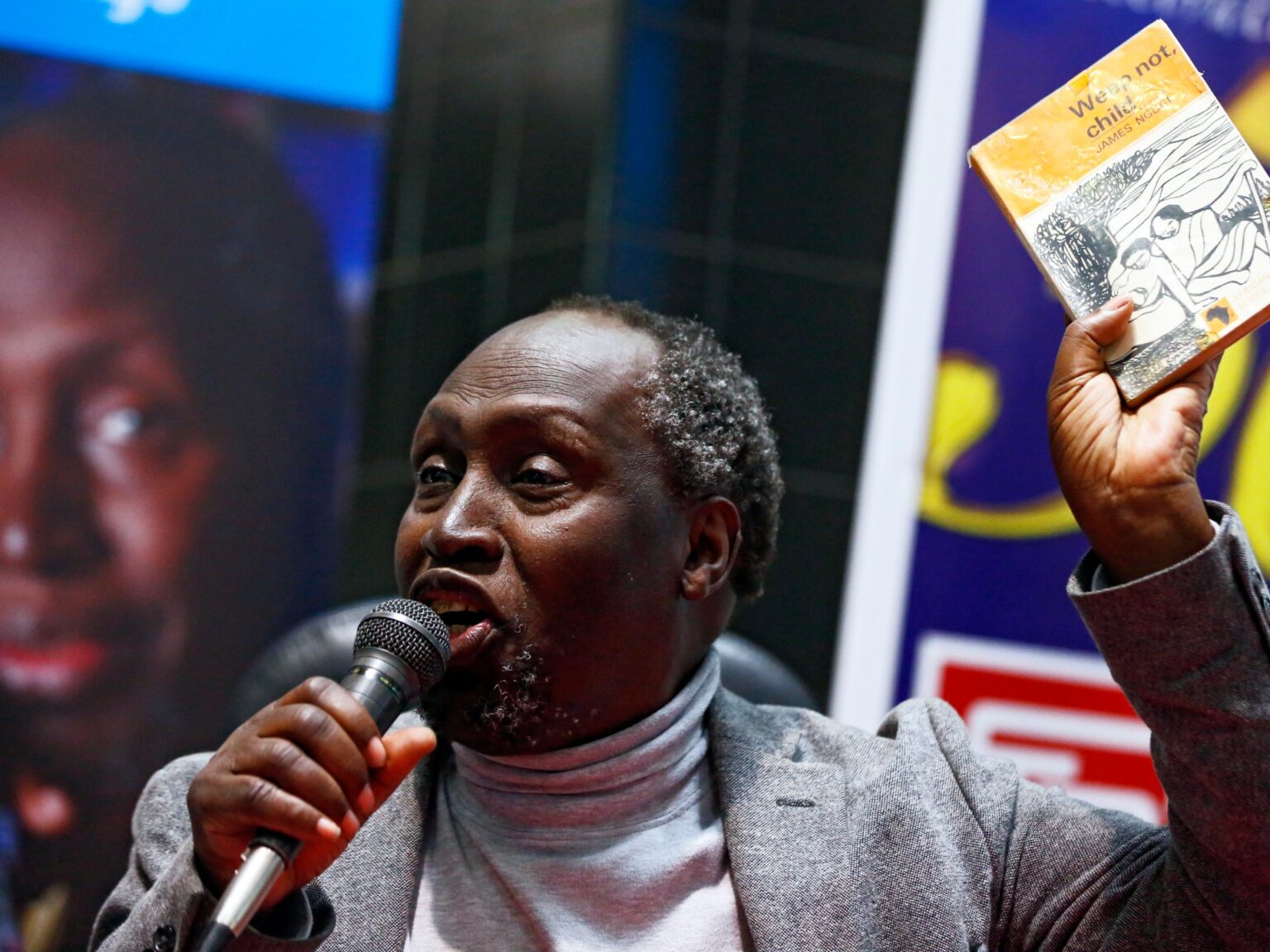Ngugi’s work critiqued both British colonialism in Kenya and postcolonial Kenyan society.
Renowned Kenyan writer Ngugi wa Thiong’o has died at age 87, his family members have announced.
“It is with a heavy heart that we announce the passing of our dad, Ngugi wa Thiong’o,” his daughter Wanjiku Wa Ngugi wrote on Facebook on Wednesday.
“He lived a full life, fought a good fight,” she said.
At the time of his death, Ngugi was reportedly receiving kidney dialysis treatments, but his immediate cause of death is still unknown.
Born in Kenya in 1938, Ngugi will be remembered as one of Africa’s most important postcolonial writers. Formative events in Ngugi’s early life included the brutal Mau Mau war that swept British-ruled Kenya in the 1950s.
Ngugi’s work was equally critical of the British colonial era and the postcolonial society that followed Kenya’s independence in 1963. Other topics in his work covered the intersection between language, culture, history, and identity.
Ngugi made a mark for himself in the 1970s when he decided to switch from writing in English to the Kikuyu and Swahili languages – a controversial decision at the time.
“We all thought he was mad… and brave at the same time,” Kenyan writer David Maillu told the AFP news agency.
“We asked ourselves who would buy the books.”
One of his most famous works, “Decolonising the Mind”, was published in 1986 while living abroad. The book argues that it is “impossible to liberate oneself while using the language of oppressors”, AFP reports.
Besides holding the position of acclaimed writer, Ngugi was a prisoner of conscience. In 1977, he was jailed in Kenya for staging a play deemed critical of contemporary society.
He once described the country’s new elite class as “the death of hopes, the death of dreams and the death of beauty”.
In 1982, Ngugi went into self-imposed exile in the UK following a ban on theatre groups and performances in his home country. He later moved to the US, where he worked as a professor of comparative literature at the University of California, Irvine. He also continued writing a range of works, including essays, memoirs and novels about Kenya.
Following news of Ngugi’s death, praise for his life and work quickly appeared online.
“My condolences to the family and friends of Professor Ngugi wa Thiong’o, a renowned literary giant and scholar, a son of the soil and great patriot whose footprints are indelible,” Kenya’s opposition leader Martha Karua wrote on X.
“Thank you Mwalimu [teacher] for your freedom writing,” wrote Amnesty International’s Kenya branch on X. “Having already earned his place in Kenyan history, he transitions from mortality to immortality.”
Margaretta wa Gacheru, a sociologist and former student of Ngugi, said the author was a national icon.
“To me, he’s like a Kenyan Tolstoy, in the sense of being a storyteller, in the sense of his love of the language and panoramic view of society, his description of the landscape of social relations, of class and class struggles,” she said.
Read the full article here

